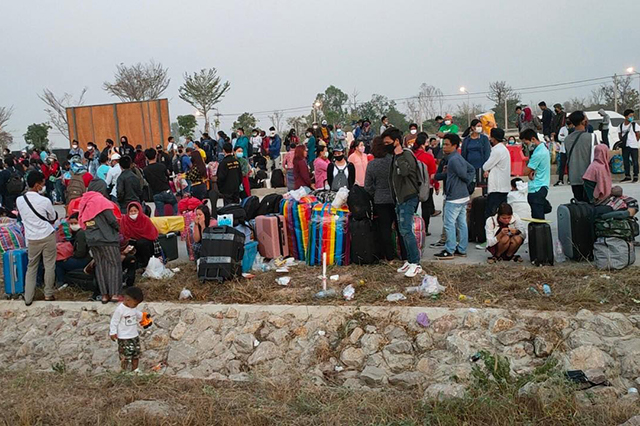The COVID-19 crisis is a threat to all countries and to all people.
We are all at risk, but many people, including migrant workers around the world, face heightened risk of contracting the virus and in many cases have limited access to adequate health care services, clean water, and sanitation.
Migrant workers are already among those most impacted by the COVID-19 outbreak, with economic activity severely disrupted and many migrants being hosted in countries where health systems are under-capacitated or unavailable to migrant populations. The situation for those migrant workers currently living in cramped and unsanitary conditions, or being forced to return to their homes in the absence of a socio-economic safety net, as part of official responses to the virus is of great concern.
As representatives of major companies, international and expert organisations, which have come together to advance respect for migrant worker rights around the world, the Leadership Group for Responsible Recruitment urges all governments to prioritise the protection of human rights during this crisis. Protecting human rights must include dedicating all available resources to realising the right to health of everyone within their jurisdictions, including migrant workers.
Migrant workers are among those disproportionately vulnerable to exclusion, stigma, and discrimination. It is therefore critical that migrant workers receive access to health services and are effectively included in national responses to COVID-19, including prevention, testing, treatment, and access to economic support. Inclusion will help not only to protect the rights of migrants and other vulnerable groups, but will also serve to protect public health and stem the global spread of COVID-19.
We should also recognise that migrant workers have skills and resources to share as part of national and global responses to the COVID-19 crisis. Countless thousands of migrants are frontline and essential workers across the world. We need the commitment and help of all people in combating this global threat to our collective humanity and we must find new ways of working together to ensure effective national and international responses that leave no one behind.
The global pandemic of COVID-19 is a powerful reminder that we are one human family. We can only defeat this virus when the human rights of each and every one of us are protected today and in the time ahead.
 Kevin Hyland
Kevin Hyland
Chair
Leadership Group for Responsible Recruitment
www.employerpays.org
Developed as an initiative of the Institute for Human Rights and Business, The Leadership Group for Responsible Recruitment is a collaboration between leading companies and expert organisations to drive positive change in the way that migrant workers are recruited. All members of the Leadership Group are publicly committed to the Employer Pays Principle – that no worker should pay for a job – and its implementation throughout their supply chains.
Image: Flickr/Prachatai





























How should businesses respond to an age of conflict and uncertainty?
As 2024 began, European Commission President Ursula von der Leyen aptly summed up our deeply worrying collective moment. As she put it, speaking at the annual World Economic Forum in Switzerland, we are moving through “an era of conflict and...
26 March 2024 | Commentary
Commentary by Scott Jerbi, Senior Advisor, Policy & Outreach, IHRB